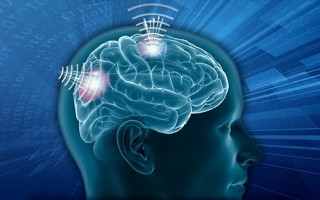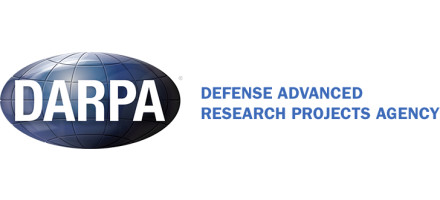DARPA creates N3 program to achieve high levels of brain-systems communications
NewsMarch 20, 2018

ARLINGTON, Va. Defense Advanced Research Agency (DARPA) officials created the Next-Generation Nonsurgical Neurotechnology (N3) program to achieve high levels of brain-system communications. Officials hope that at the end of the four-year effort, the program will conclude with a demonstration of a bidirectional system being used in a defense-relevant task that could include human-machine interactions with unmanned aerial vehicles (UAVs), active cyberdefense systems, or other properly instrumented Department of Defense (DoD) systems.
Officials say, if successful, N3 technology could ultimately find applications in these and other areas that would benefit from improved human-machine interaction, such as partnering humans with computer systems to keep pace with the anticipated speed and complexity of future military missions.
“DARPA created N3 to pursue a path to a safe, portable neural interface system capable of reading from and writing to multiple points in the brain at once,” says Dr. Al Emondi, program manager in DARPA’s Biological Technologies Office (BTO). “High-resolution, nonsurgical neurotechnology has been elusive, but thanks to recent advances in biomedical engineering, neuroscience, synthetic biology, and nanotechnology, we now believe the goal is attainable.”
“We’re asking multidisciplinary teams of researchers to construct approaches that enable precise interaction with very small areas of the brain, without sacrificing signal resolution or introducing unacceptable latency into the N3 system,” he adds. The only technologies that will be considered in N3 must have a viable path toward eventual use in healthy human subjects.
If early program deliverables overcome the physics challenges, along with the barriers of crosstalk and low signal-to-noise ratio, subsequent program goals would include developing algorithms for decoding and encoding neural signals, integrating sensing and stimulation subcomponents into a single device, evaluating the safety and efficacy of the system in animal models, and ultimately testing the technology with human volunteers.
“Smart systems will significantly impact how our troops operate in the future, and now is the time to be thinking about what human-machine teaming will actually look like and how it might be accomplished,” Emondi says. “If we put the best scientists on this problem, we will disrupt current neural interface approaches and open the door to practical, high-performance interfaces.”
DARPA representatives invited federal regulators to participate from the beginning of the N3 program. They will be serving as aids for researchers to help them better understand regulatory perspectives as they begin to develop technologies. Later in the program, these regulators will again serve as a resource to guide strategies for submitting applications, as needed, for Investigational Device Exemptions and Investigational New Drugs.
DARPA is being similarly proactive in considering the ethical, legal, and social dimensions of more ubiquitous neurotechnology and how it might affect not only military operations, but also society at large. Independent legal and ethical experts advised the agency as the N3 program was being formed, and will continue to help DARPA think through new scenarios that arise as N3 technologies take shape. These individuals will also help to foster broader dialogue about how to maximize societal benefit from those new technologies. Separately, proposers to N3 must also describe mechanisms for identifying and addressing potential ethical and legal implications of their work. As the research advances, published N3 results will further facilitate broad consideration of emerging technologies.
DARPA is hosting a Proposers Day on April 3, 2018, in Arlington, Virginia, to provide more information about N3. For additional information, including registration, visit: https://www.fbo.gov/spg/ODA/DARPA/CMO/DARPA-SN-18-38/listing.html.





